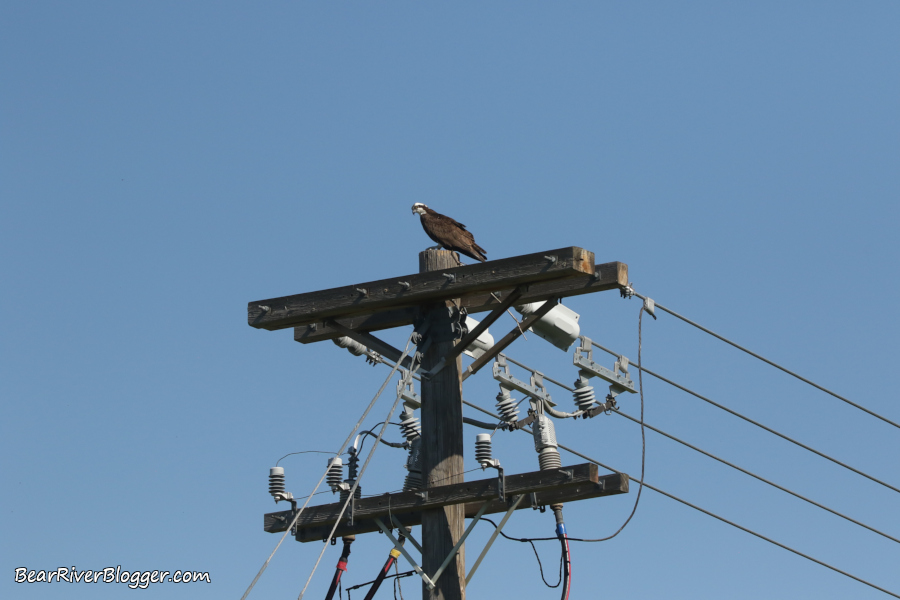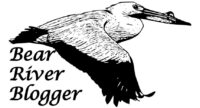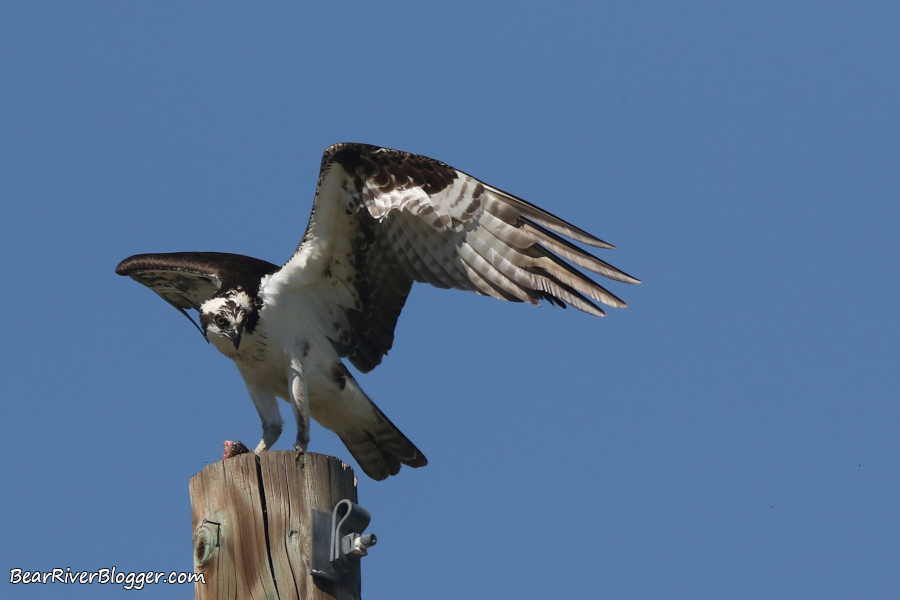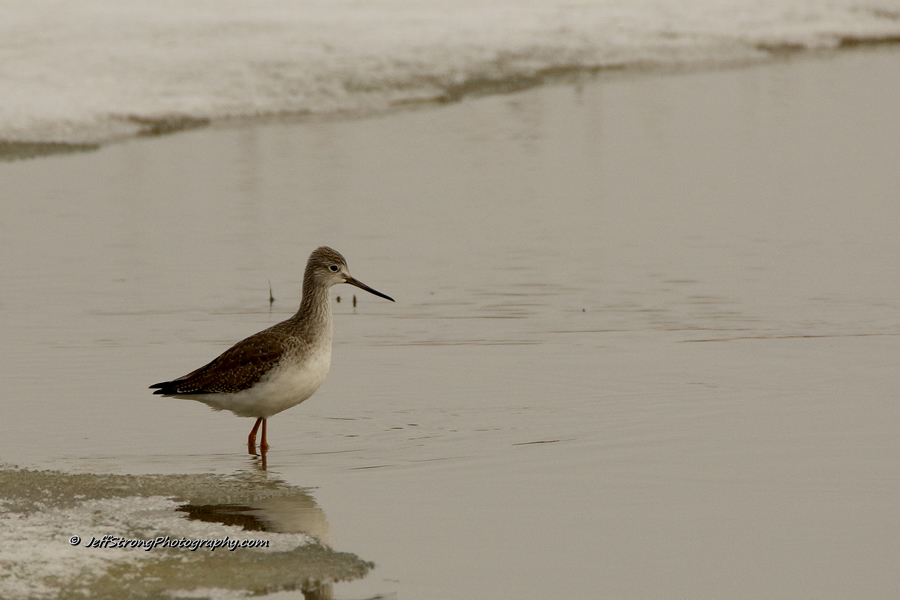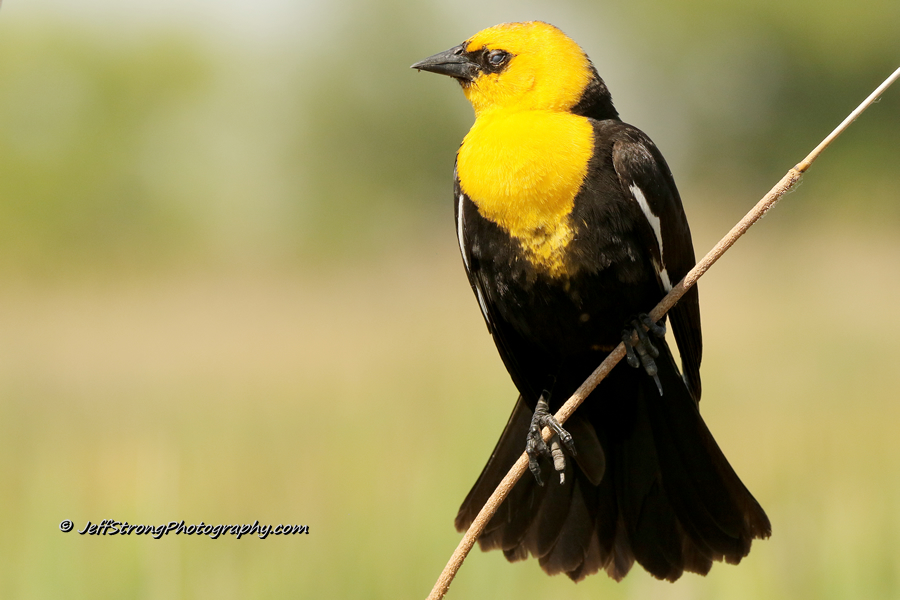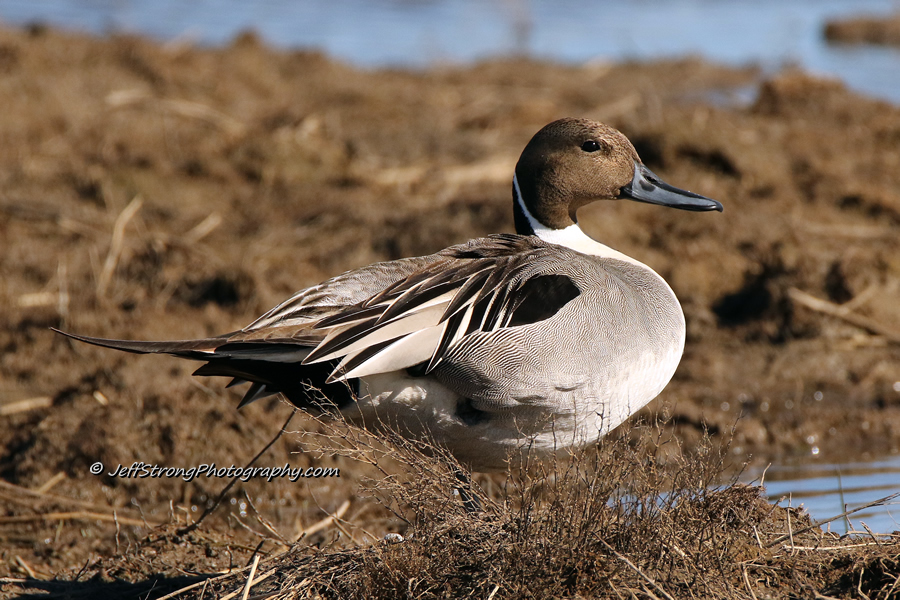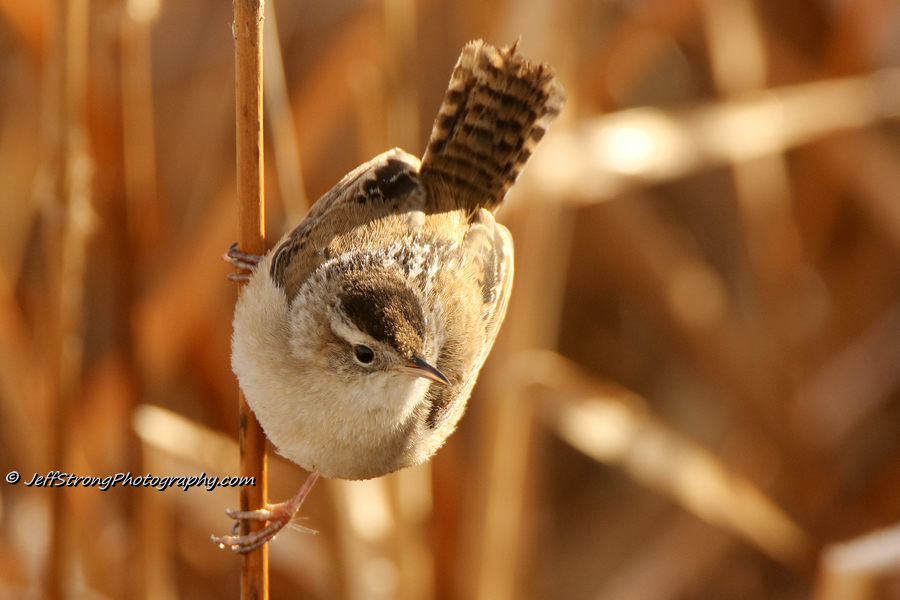I’ve always considered myself a fairly observant person, at least with things relating to birds that is, but late last week when I noticed something was a bit out of place on a road I’ve literally driven thousands of times over the past two decades I started to question myself on that, at least a little bit that is.
What I’m referring to is a few days ago I was driving to Brigham City, Utah, and noticed what appeared to be a nesting platform atop a tall, wooden pole situated just a few yards away from the busy roadway I was driving on.
Being a birder and one that’s familiar with artificial nests, at least in general I’d say, the minute I laid my eyes on the large structure I knew what it was, a nesting platform of some kind but for what species of bird and why was it in this particular location?
Without knowing the full narrative behind it the artificial nest did seem a bit odd and out of place at first but I knew there had to be a perfectly good explanation for it and, well, I was quite determined to find the story behind why it was there and who exactly put it up?
Each day I drove past the pole my mind pondered these and a few other questions until two days ago when I noticed a very distinctive profile sticking up above the platform, an osprey head to be more precise.
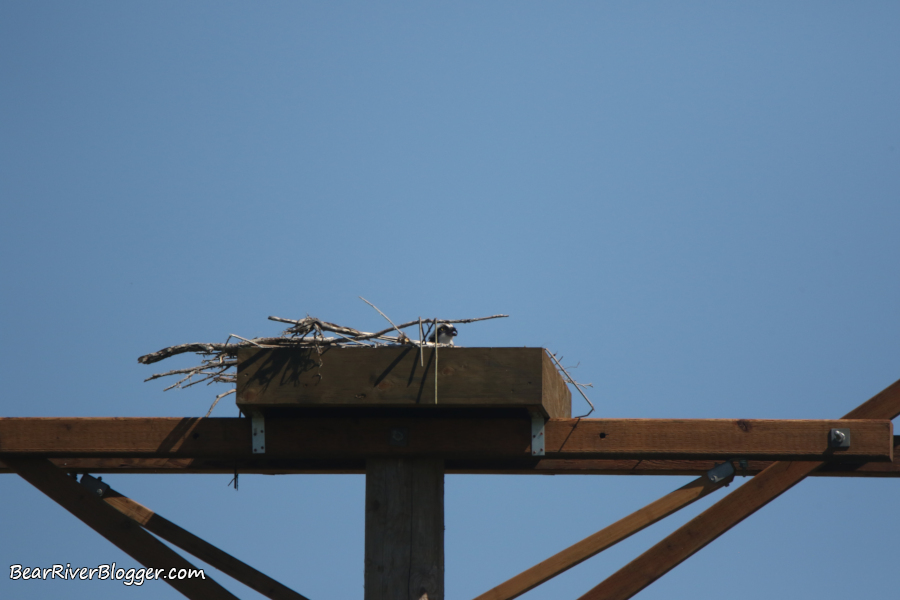
Putting two and two together, namely the raptor and the nearby power poles, I started to postulate the nesting platform was some kind of mitigation to try and keep this osprey from nesting on the active poles themselves, something that is very dangerous for both man and bird alike.
Power companies, here in Utah and all over the country, face the same dilemma each year, hawks, owls, and ravens, among other birds, using live power poles for their preferred nesting locations.
In fact, it’s not just raptors, per se, that nest on power poles but great blue herons are known to nest on the large metal transmission line structures in Farmington, Utah, causing more nesting platforms to recently be added to the heron rookery at the Eccles Wildlife Education visitors center to try and lure the herons back to the wetlands and away from the towering electrical lines nearby.
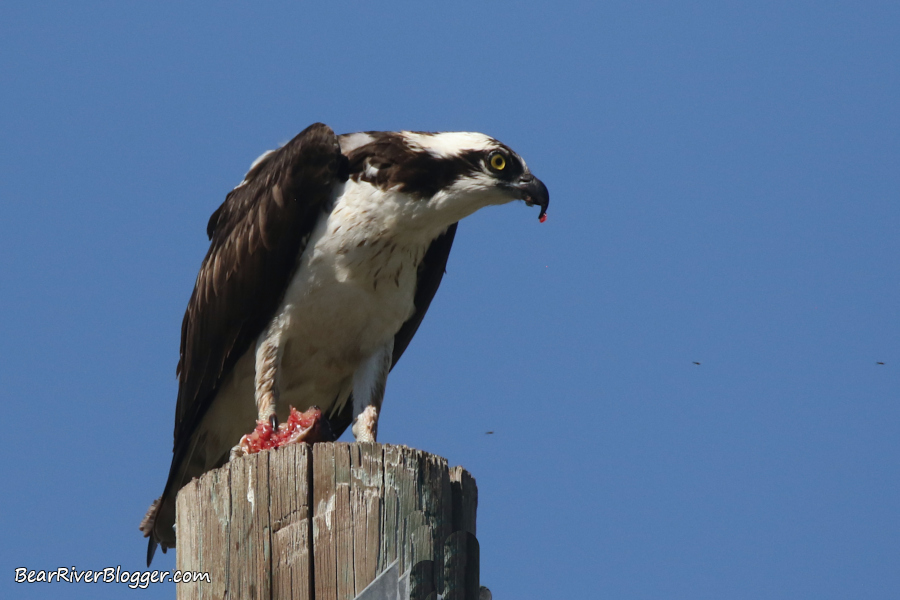
For whatever reason raptors and other large birds choose to nest on power poles, public utilities are faced with two difficult tasks, the first is waiting until after the breeding season is over to remove these poorly placed bird nests, being both illegal to disturb an active nest and dangerous to remove such items from around live power lines, with the second being discouraging birds from using power poles as nesting locations in the first place.
What I found from researching the matter is Brigham City Public Power decided to take a different approach to the problem, one that includes last week’s installation of a nearby platform to offer the osprey a more suitable and safer location to nest instead of on the active power poles.
After numerous phone calls and emails yesterday in search of anyone at all who even knew this nesting platform existed, let alone who built it and why it was put up in the first place, I finally found my answer when I was directed to Lisa Scott with Brigham City Public Power.
Scott not only confirmed it was installed by the city’s power personnel but it was also erected just last week to entice a breeding pair of osprey from building their nest on a nearby power pole, giving a good reason why nobody I reached out to knew of this structure yet since it had only been standing for about a week or so.
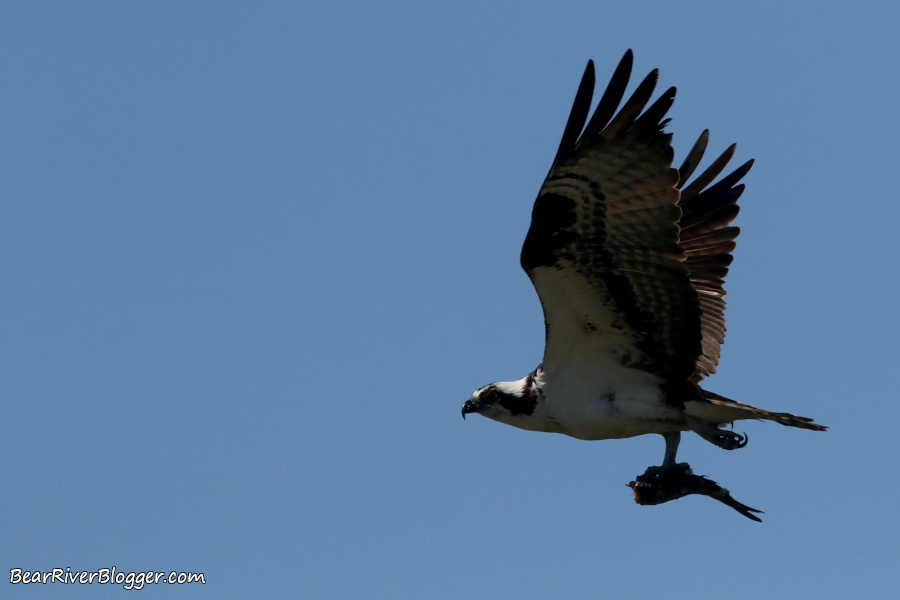
And from what I witnessed yesterday, in fact, there are two adult osprey at this location and what appears to be a nest already being built on the platform so the osprey seem to be utilizing the structure and leaving the active power poles alone, a win-win situation for both the osprey and the city as well.
It’s interesting to note this is a most unusual place for ospreys to be building a nest, so far away from open water and the fish they almost exclusively feed on during the year, and why I wasn’t certain what kind of bird it was built for when I initially came upon the structure.
There are nesting ospreys to the north in Cache Valley and to the south at Willard Bay but both are adjacent to large bodies of water where this particular location is literally on the edge of town, several miles away from the Bear River and even further from the Bear River Migratory Bird Refuge wetlands.
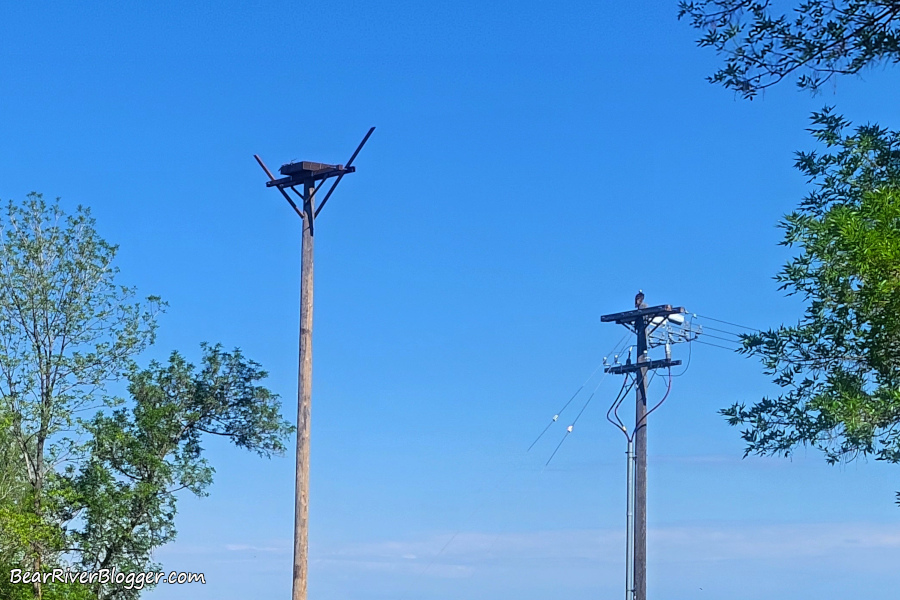
No matter the reason why this pair of osprey picked a most peculiar spot like this to build a nest, it is quite exciting to see such a majestic bird so close to civilization, and birdwatchers like myself should be grateful for the efforts and quick thinking by Brigham City Public Power to successfully erect a nesting platform in time to entice the osprey away from nesting on the live poles but still allow them to remain literally in our backyard.
Subscribe And Follow Bear River Blogger
If you are a lot like me, an avid birdwatcher and nature photographer who loves to be outdoors, especially around the Great Salt Lake and its wetlands, I offer you to head on over to our subscribe page and sign up for email notifications for future blog posts about our love for nature, including the famous Bear River Migratory Bird Refuge.
For those of you who utilize the technology of social media, we have also started a Bear River Blogger Facebook page you can follow where we post updates and images about the famous Bear River Migratory Bird Refuge auto tour route, as well as other natural places of interest, that are too small for a blog post here on this website.
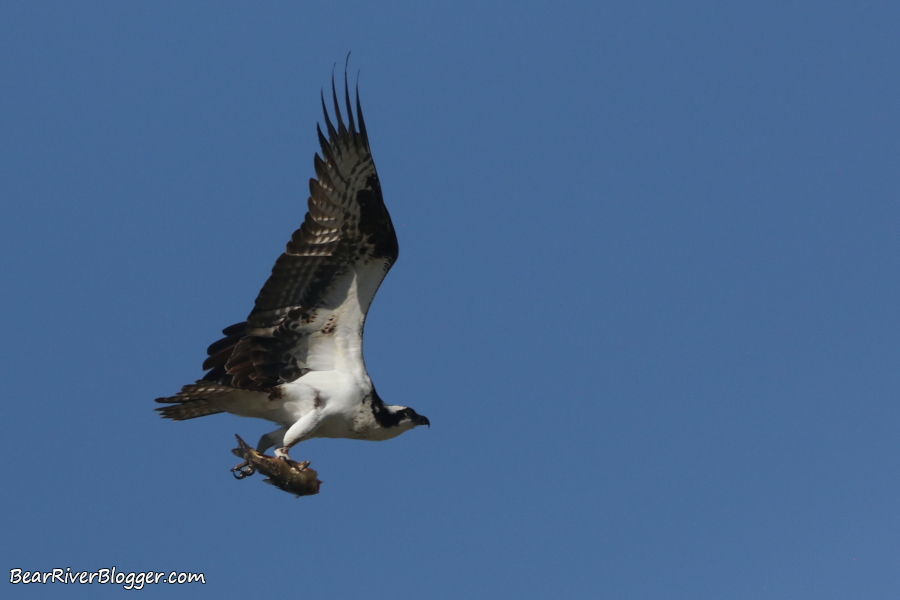
(Swainson’s Hawk Sighting. For short nature photography tips and interesting stories about the natural world around us, subscribe to our Bear River Blogger channel on YouTube for videos and updates from our travels while out in nature, both on and off of the famed Bear River Migratory Bird Refuge.)
